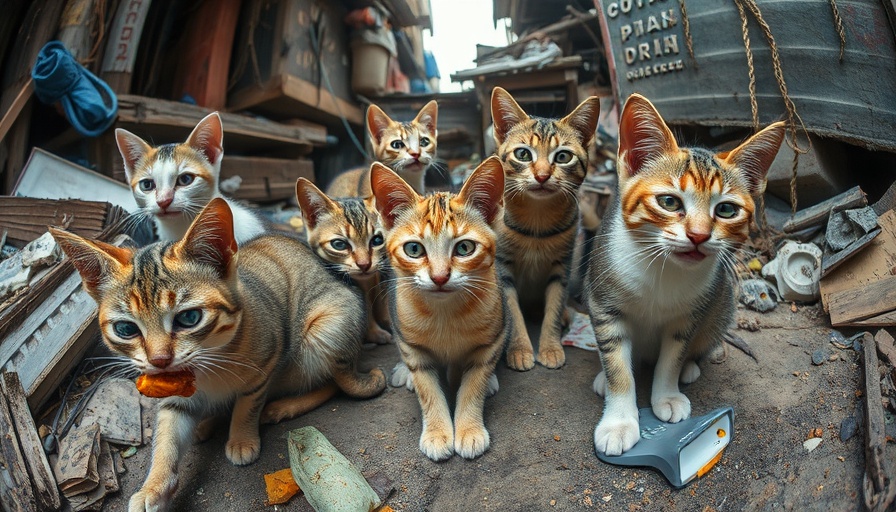
A Ray of Hope for Feral Cats: TNR Policy in Costa Mesa Might Finally Pass
In Costa Mesa, a plan to legally trap, neuter, and return (TNR) feral cats to their original habitats is inching closer to reality after seven long years. This initiative, pivotal for the local cat population, has seen a dedicated ad hoc group of activists push through bureaucratic hurdles, all while the feral cat numbers continue to swell unchecked.
Understanding the Feral Cat Crisis
The feral cat dilemma in Costa Mesa is severe, with estimates suggesting that one unspayed female cat can lead to the birth of nearly 23,000 kittens in seven years. This alarming statistic is fueling the push for TNR—a method acclaimed for both its humanitarian and practical benefits in controlling cat populations.
Community Voices Behind TNR
Local residents have voiced their concerns regarding the growing population of feral cats, emphasizing the threat these animals pose not just to local ecology but also to public safety and the burden on municipal shelters. Becca Walls, vice chair of the Animal Services Committee, has been a staunch advocate for the TNR program, sharing how it could alleviate shelter overcrowding and foster healthier communities.
What's Holding Up Progress?
Despite a well-researched proposal, the TNR program has faced unwarranted delays. Critics point to a bewildering lack of action from city officials, who have demanded more data instead of moving forward with the proposed legal framework. This impasse raises questions about the effectiveness of local governance in responding to community needs.
Measurable Impact of TNR
Should the TNR ordinance pass, it would allow residents to safely manage feral cat populations, drastically reducing future shelter costs and creating a win-win situation for both the community and the animals. Proponents assert that empowered residents will lead to better data collection and ensure humane treatment of feral cats by providing them a chance to live without increasing in number.
Next Steps for Costa Mesa Residents
The Animal Services Committee is set to convene soon, a critical meeting where community members can show their support for the proposed TNR policy. It’s essential for residents around Sunset Beach, Huntington Beach, and Seal Beach to lend their voices and advocate for pets who can’t advocate for themselves.
The Priceless Pets Connection
Many local rescue organizations, like Priceless Pets, eagerly await the approval of the TNR ordinance. Owner Lisa Price highlights how current legal restrictions hinder what they can do for feral cats and that a legally sanctioned TNR program would alleviate much of the suffering inflicted upon these innocent animals, optimizing resources and strategies in place.
Embracing Responsible Pet Ownership
The narrative surrounding TNR not only emphasizes animal welfare but also reflects on the shared responsibility of all residents in Costa Mesa. Implementing TNR can effectively foster a culture of responsible pet ownership, benefiting both the community and the feral cat population. Through collaboration, education, and updated legislation, residents can make a significant impact.
Moving Forward Together
Costa Mesa has a unique opportunity to set a precedent by adopting humane practices for managing feral cat populations. By participating in upcoming meetings and supporting the TNR initiative, residents can play a vital role in addressing this critical issue.
So, how can you help? Attend the Animal Services Committee's next meeting at the Community Room at City Hall and show your support for the TNR ordinance. It’s time for the community to rally behind the feral cats and contribute to a change that acknowledges their needs while benefiting the entire Costa Mesa ecosystem.
 Add Row
Add Row  Add
Add 




Write A Comment